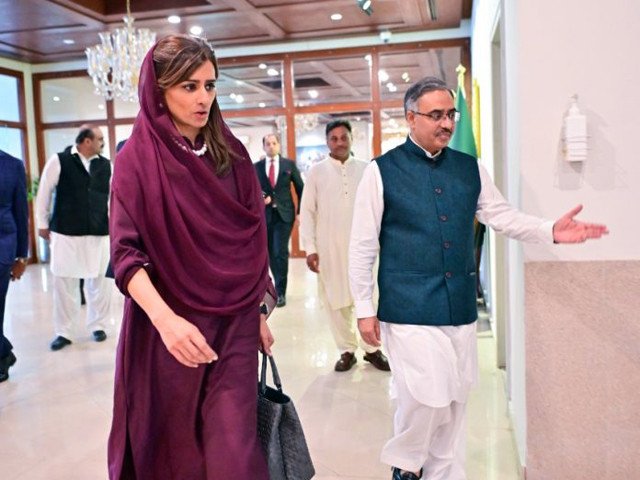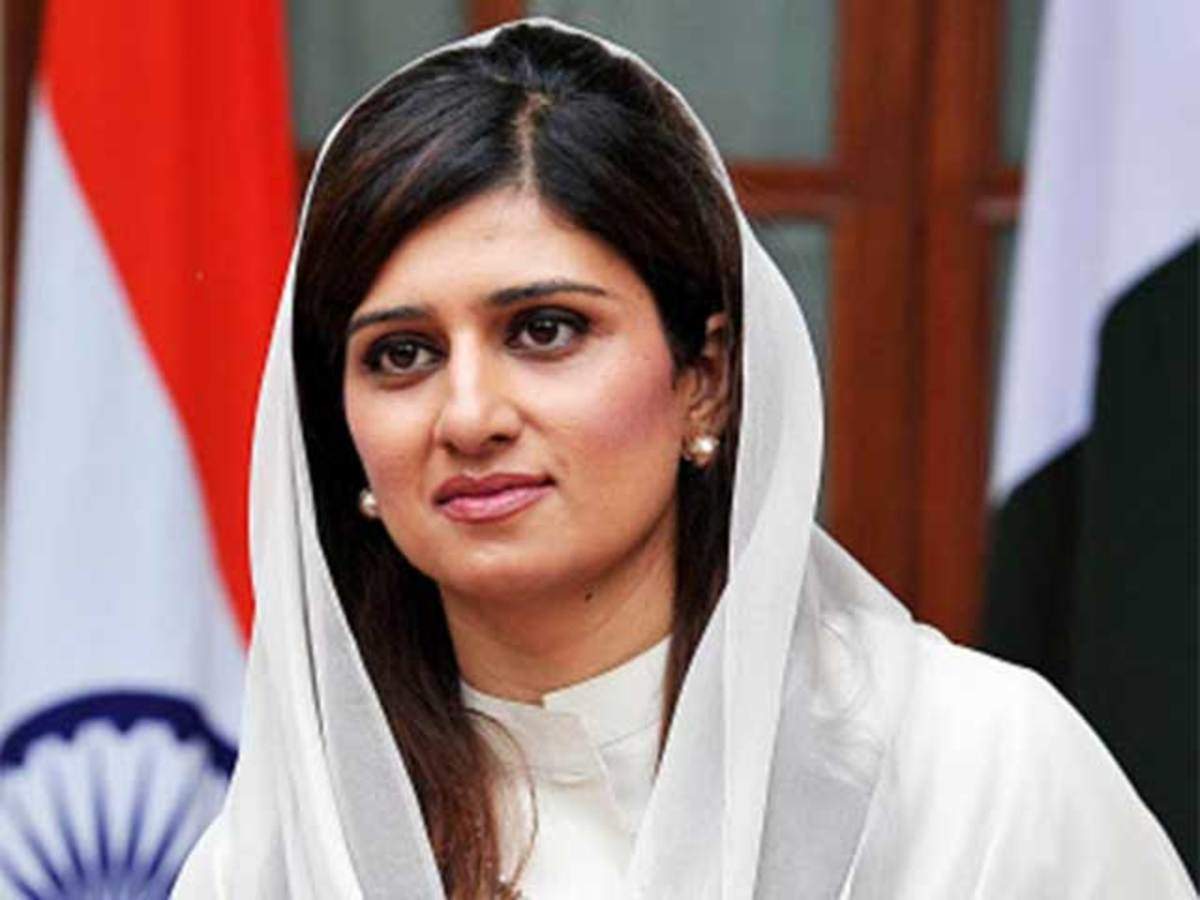Hina Rabbani Khar, who received star treatment during her maiden official visit to India, will serve as Pakistan’s junior foreign minister in Prime Minister Shehbaz Sharif’s new 37-member cabinet, which was presented on Tuesday.

During her time as Pakistan’s minister of state for foreign affairs, between February 2011 to March 2013, Khar was the country’s youngest and first female minister. She has got re-appointment to the same job.
According to the Express Tribune, after taking the oath of office, Khar underlined the importance of making “sincere efforts” to overcome the diplomatic difficulties. While chairing her first high-level meeting, she voiced these sentiments.
Foreign policy in Pakistan, particularly with the United States and India, is not totally in the hands of civilian politicians, but rather is directed from Rawalpindi. Pakistan’s Chief of Army Staff, Qamar Javed Bajwa, recently made statements indicating that the military sought to push Pakistan away from Imran Khan’s populist foreign policy and toward stronger ties with the US and normalisation of relations with India.
With Imran Khan’s Pakistan Tehreek-e-Insaaf organising big rallies for hasty general elections, Islamabad may find it difficult to make significant foreign policy concessions. Even if elections are held on time, the Sharif government would only have around 16 months in office, which may not be enough time to focus on international relations when the country is in such dire straits.
There was extensive speculation in the run-up to the cabinet formation that Pakistan Peoples’ Party chairman Bilawal Bhutto Zardari would be named foreign minister. But, as noted Pakistani writer Hamid Mir told Karan Thapar in an interview with The Wire, his absence is owing to Zardari’s engagement in settling critical political issues with allies. Zardari is expected to be inaugurated in as foreign minister within the next 14-20 days, according to Mir.
Even if Zardari is appointed as foreign minister, he is likely to be mentored by Khar, who has greater expertise, at least in the beginning. So, how will Khar, Zardari, and Sharif proceed? Examining her prior two-year term as well as remarks she’s made since then might be beneficial.
Khar was characterised as the “scion of an affluent landowning family from southern Punjab” by The Guardian in a 2011 feature. She entered politics at the age of 25, after graduating from a university in the United States. Khar’s “landlord father Noor addressed rallies and glad-handed supporters during her maiden election; Hina kept mainly at home, with not even her face appearing on the posters,” according to the newspaper.
She was one of the few ministers that moved from General Pervez Musharraf’s military government to the civilian government. She became a member of the Pakistan People’s Party shortly before the country’s general election in 2008.
Khar travelled to India shortly after being appointed as the junior foreign minister. After the 2008 Mumbai terror attacks, talks between the two nations were halted, but they were restarted around the time of her appointment. Trade and Kashmir were discussed during her visit. She also met with the Hurriyat Conference, a separatist Kashmiri organisation that was criticised by the BJP, the largest opposition party at the time.
In 2015, Khar told Al Jazeera that the Asif Ali Zardari administration shifted its focus to regional issues during her term. “We didn’t need a strong connection with London or Washington,” she explained, “but we did need a wonderful relationship with Kabul and Delhi.” She also lauded the Zardari administration for separating the trade and Kashmir concerns.
She also acknowledged Pakistan’s role in instilling “extreme ideas” in select terror groups. “I don’t see the world being any more ordered any time soon.” The reason for the chaos isn’t because of a power struggle; it’s because we use the instruments that promote chaos. “Extremist ideas instilled in them by nations, particularly the US and Pakistan, formed al-Qaeda, Taliban, and violent Islamic State organisations,” she stated at a Lahore event in 2015.











